The amateur sleuth who searched for a body - and found one
- Published
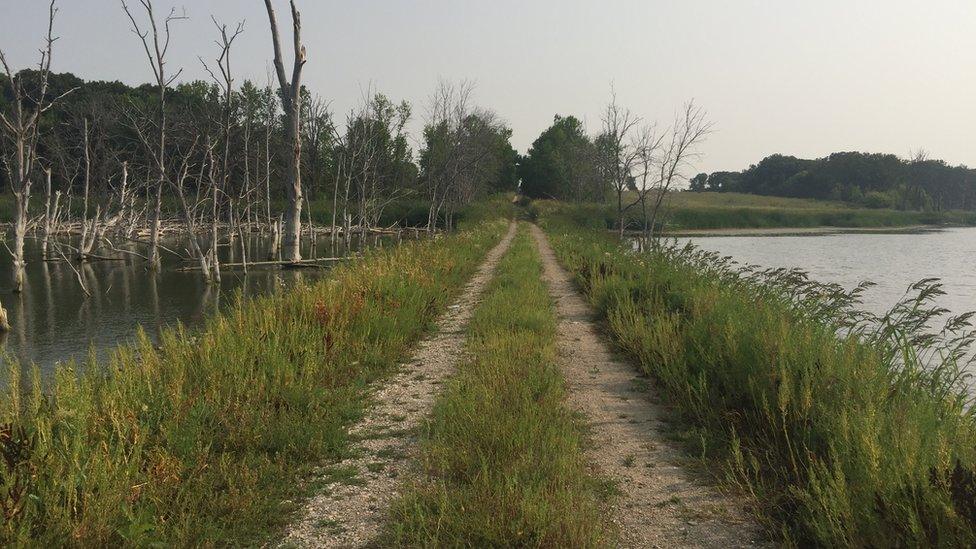
This story is published in collaboration with High Country News., external
A car wreck found at the bottom of a lake brought the search for a missing young mother to an end. But why was it a volunteer team behind the discovery, and not the police?
On a blazing hot day in late July, Lissa Yellowbird-Chase drove her black SUV, license plate "SEARCH", to a muddy landing on Lake Sakakawea. It was a remote entrance to the water on the northern edge of the Fort Berthold Reservation in North Dakota - not much more than a rickety dock at the end of an uneven gravel road.
Hitched to the back of Yellowbird-Chase's truck was a 14-foot boat with a half-broken motor and a set of fishing sonar. By her own admission, she was not a particularly skilled or experienced boater, nor an expert in sonar. But she had a plan.
Along with a couple of volunteers from her group, the Sahnish Scouts of North Dakota, they would motor along the shoreline of the bay, scanning the lakebed for anomalies, moving further and further away from the shore with each pass. They would keep going until Yellowbird-Chase satisfied the nagging feeling she'd had about this spot for months.
"I don't know what it was - I was drawn to that place," she recalled later. "I actually stood in that bay last fall."
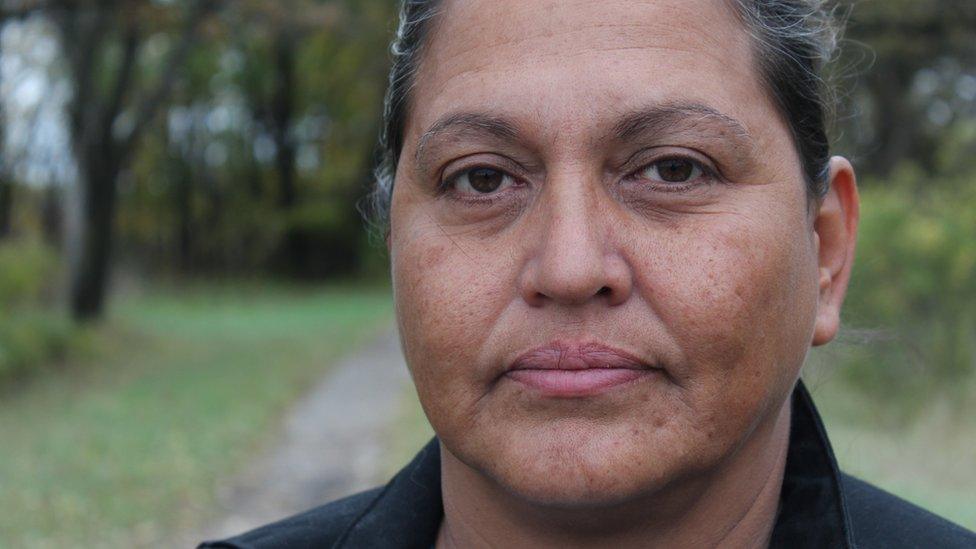
Lissa Yellowbird-Chase: "Don't wait for law enforcement."
Nine months earlier, in the autumn of 2017, a young mother of five named Olivia Kerri Lone Bear vanished from New Town, a tiny oil-boom city on the Fort Berthold Reservation. The 32-year-old was last seen on 24 October, at the wheel of a teal-coloured Chevy Silverado pick-up truck that she often borrowed from a friend. She was a caretaker for her father, and the following day, he found her wallet and mobile phone at his home.
Since then, the Lone Bear family had been searching for Olivia in vain. Yellowbird-Chase joined the effort along with the Sahnish Scouts, a group she founded in 2015 to search and recover missing people in Indian Country - though she had been doing the work on her own since about 2011.
"PLEASE SHARE," she posted on Facebook five days after Olivia disappeared, alongside a missing poster with telephone numbers for the Lone Bear family and her own personal mobile number. "You can remain anonymous."
In the weeks that followed, large groups of volunteers fanned out across the 1-million acre reservation on foot, and on all-terrain vehicles. Her family took over a tribal government building and established a search headquarters with a tipline, which they manned every day for months. Reported sightings came from as far away as California and Arizona.
But once the tundra-like North Dakota winter set in, all search efforts - aside from keeping the phone line open - had to be suspended until spring. The lake froze over, sealing itself under a thick crust of ice.
By July, when Yellowbird-Chase pushed out in her boat, summer was in its full height, and the waters were wide open.
She tried not to get excited when, a few hundred feet from the shore, her sonar picked up a rectangular object on what should have been the blank, featureless lakebed. In the early 1950s, the US Army Corps of Engineers dammed the Missouri River and created Lake Sakakawea, flooding farmland that belonged to the Mandan, Hidatsa and Arikara tribes, and swallowing towns whole. The anomaly she saw on the screen could be nothing more than an old building foundation or a chimney, she thought.
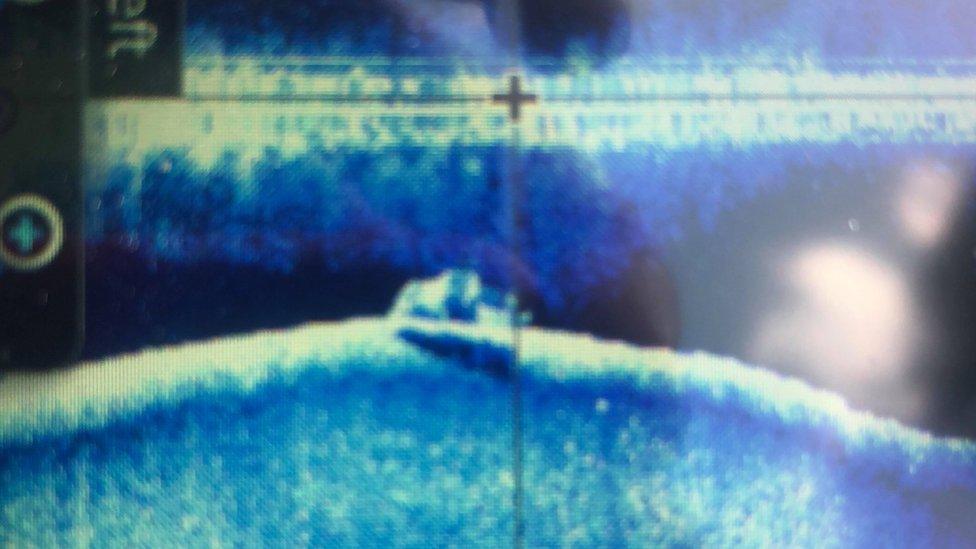
One of several scans the Sahnish Scouts took on Lake Sakakawea
Still, she took a photo and texted it to Keith Cormican, a technical diver and certified underwater sonar operator in Wisconsin. While Yellowbird-Chase was a sonar novice, she considered Cormican her "mentor" - his organisation Bruce's Legacy has located and recovered 27 drowning victims since 2013.
"I knew she had a vehicle," he recalled.
He texted back that she should keep taking scans at different times of day, to catch shadows coming off the object that would give it better definition.
After days of obsessively motoring back and forth over the same spot, and struggling with their broken motor, Yellowbird-Chase texted a new image to Corey Bristol, the then-chief deputy of the Mountrail County Sheriff's Office. It was a Saturday, and Bristol was 70 miles away, spending his day off with his father. But when he looked down at his phone and saw a pixellated image featuring what looked like a tiny Tonka truck at the centre, he jumped in his car and accelerated back towards New Town.
"We definitely wanted to find out what was down there," he said.
Bristol contacted the North Dakota Game and Fish Department, who sent their own agents. He also shared the image with Sergeant Ben White at the Williams County Sheriff's Office, the closest local jurisdiction with a dive team. White said he recognised the object immediately.

Lake Sakakawea
"There's the wheels, there's the windshield - I see it," White remembered thinking. "I said, 'We're going to pull a vehicle tomorrow.'"
On 31 July, officers from Williams County, Mountrail County, the Bureau of Indian Affairs and North Dakota Game and Fish converged on the site. Yellowbird-Chase and her volunteers watched from the marina across the bay through binoculars. They watched as the dive team sailed out to the spot, and the divers plunged in. They watched as a tow truck backed up to the water's edge and officers fetched an extra-long tow strap.
Eventually, after many hours of work, the roof of a pick-up truck - grey with muck and silt - broke the surface of the water.
When officers looked into the cab, the nine-month search for Olivia Lone Bear officially came to an end.
"I didn't know how to feel," said Yellowbird-Chase. "I was happy that I knew closure was going to happen. I was happy that her children would know the only thing that would come between them and their mom was death."

Why Lissa Yellowbird-Chase went back to find Olivia Lone Bear
Over the years, Yellowbird-Chase - a steely, plainspoken 50-year-old, and an enrolled member of the Mandan, Hidatsa and Arikara Nation - has assisted in dozens of missing persons cases. She is a part of a growing community of mostly-female amateur sleuths and activists who say cases of missing indigenous men and women are routinely under-prioritised and under-investigated by authorities.
"Don't wait for law enforcement," Yellowbird-Chase once advised at a press conference for Lone Bear. "People have this false sense of security that when you file a missing person report, that all of the officers and detectives jump in their cars and run all over the place looking for this person. That's simply not true."
Law and order is handled completely differently on tribal land than it is in the rest of the United States, under a system that the bipartisan Indian Law & Order Commission called "an indefensible morass of complex, conflicting, and illogical commands" in a 2013 report to Congress and then-President Barack Obama.
Thanks to a series of federal laws dating as far back as the 18th Century, tribal governments and their police departments have very limited power to enforce the law, and instead must rely on state and federal authorities to administer justice.
"When Congress and the administration [US Government] ask why the crime rate is so high in Indian country, they need look no further than the archaic system in place," the commission's report said.
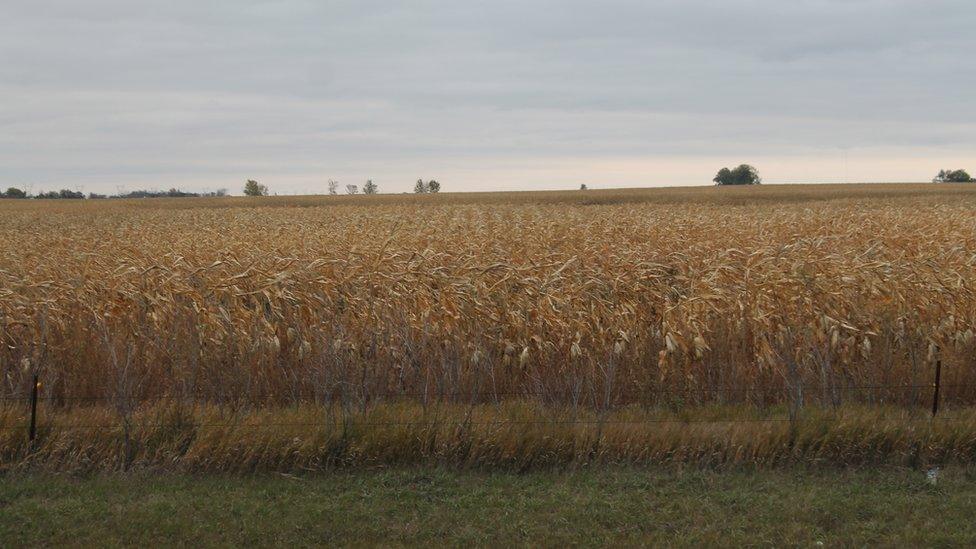
A 1978 Supreme Court decision stripped tribal nations of prosecutorial and police jurisdictional powers, meaning tribal police officers and prosecutors have no authority over non-Natives who commit crimes on reservations or in tribal territories. If tribal police encounter a non-Native crime suspect, they often have to wait - sometimes hours - to turn the person over to officers from the police or sheriff's department with proper jurisdiction.
That response is contingent on tribal and non-tribal law enforcement agencies having a good working relationship, according to Tim Purdon, the US Attorney for the state of North Dakota from 2010 to 2015.
"You'd go to meetings and every tribal police officer would have some terrible story about pulling over a non-Native for a DUI and calling the sheriff because he didn't have jurisdiction, and nobody ever coming," he said. "All it takes is one person in that chain of command who, for whatever reason, doesn't want to collaborate."
Certain exceptions exist - for example, the reauthorisation of the Violence Against Women Act in 2013 gave tribal officers and prosecutors authority to arrest and charge non-Natives for domestic violence crimes.
But tribes cannot pursue felony convictions of their own members for major crimes like murder, manslaughter, rape and kidnapping. Only federal prosecutors have that power, and a 2010 US Government Accountability Office report showed that United States attorneys declined to prosecute half of all cases from Indian Country over a five-year period.
North Dakota had one of the highest rates of declinations - 62% of violent crime cases referred to them were turned down. Since 2010, nationwide case declination rates have dropped from half to about one-third of cases, but mistrust of federal authorities persists.

When a crime has occurred, simply establishing which agency - whether tribal, municipal, state or federal - has jurisdiction over a case can be a surprisingly high hurdle to clear. Law enforcement officers are much more scarce in Indian Country than in comparable rural and suburban parts of the US, and one of the most tired axioms in this corner of law enforcement is that "it is not a crime to go missing".
"I have had cases in Alaska that I have talked to no less than a half-dozen agencies that have all said, 'It ain't one of mine,'" said Janet Franson, a retired Florida homicide detective who founded the group Lost and Missing in Indian Country four years ago.
Reliable data about this issue is scarce, and the most commonly used crime statistics show glaring discrepancies when it comes to counting Native American crime victims. For instance, the FBI's Uniform Crime Report lists 2,415 American Indian or Alaska Native homicides from 1999 to 2017. However, Centers for Disease Control and Prevention data collected from US medical examiners from the same time period showed 4,821 homicide victims identified as American Indian or Alaska Native - meaning only half were recorded by the FBI's database.
"We can't respond to violence we don't track," said Annita Lucchesi, executive director of the Sovereign Bodies Institute, who has been working for four years to create her own comprehensive database.
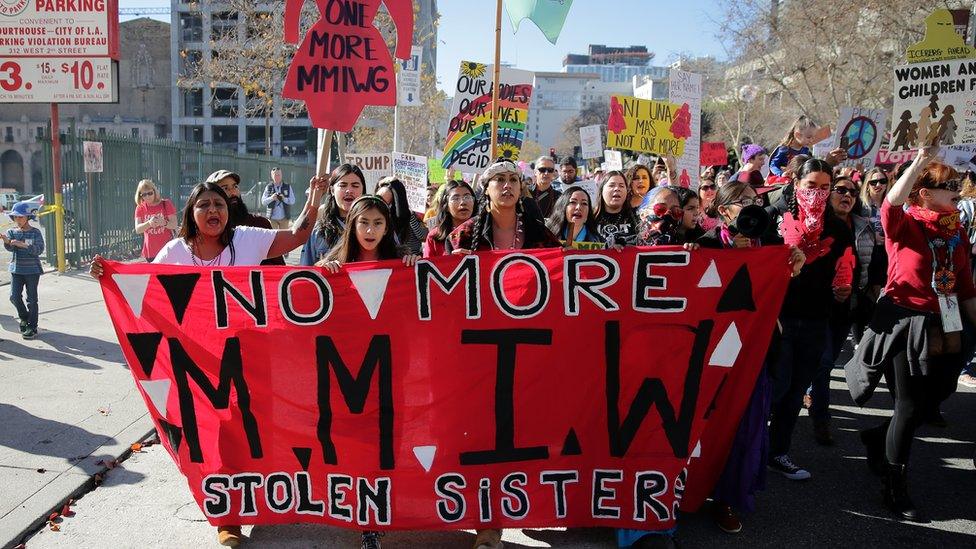
In response to these obstacles, a grassroots movement of indigenous activists have coalesced to take matters into their own hands, categorised loosely under the banner of the Missing and Murdered Indigenous Women (MMIW) movement, though there is no one unifying organisation or label.
The MMIW acronym first emerged in Canada in the 1990s, where activists have been sounding the alarm about disproportionate rates of violence and homicide against indigenous women for decades. The movement has strengthened in part thanks to social media networks like Facebook, which gave activists the power to publicise their missing persons cases without needing the help of news reporters or police.
Many advocates take their work offline as well, liaising between victims' families and law enforcement. That can include helping families to submit their DNA to the National Missing and Unidentified Persons System (NamUs), or the FBI's Combined DNA Index System (CODIS), which can compare profiles to those of unidentified human remains.
"A lot of families don't know they can do that," said Carolyn DeFord, an MMIW activist in Tacoma, Washington, whose own mother disappeared in 1999. "You'd think they'd get a checklist, but families don't get basic tools."
Few advocates have plunged into active cases further than Yellowbird-Chase. Not only does she search for the bodies, she tries to solve open cases. This has made her an ally to families with no one else to turn to, and extremely unpopular with others, including some in law enforcement.
"She can be overly pushy," conceded Mountrail County Sheriff Corey Bristol, who has known Yellowbird-Chase for years. "But if it gets you results, maybe that's not a bad trait."
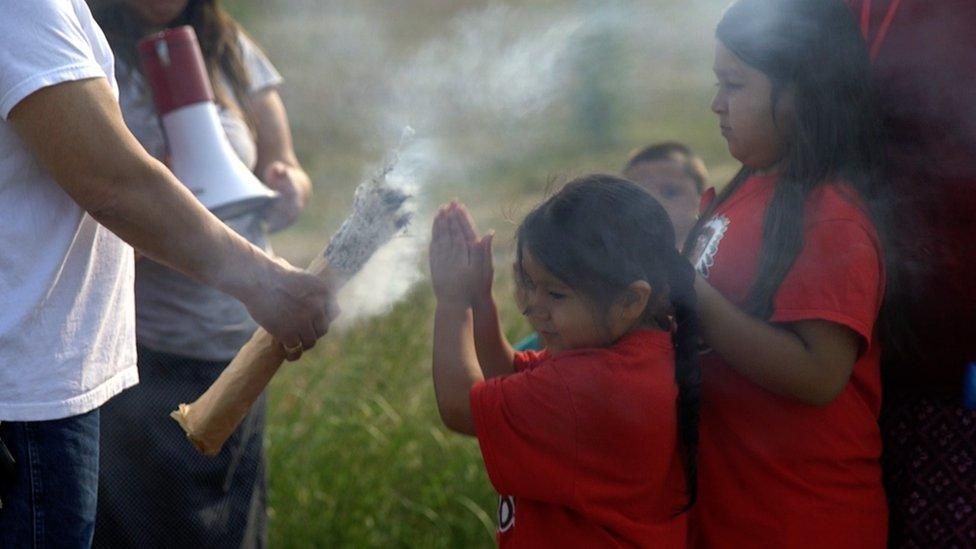
A young girl participates in a walk for missing and murdered indigenous women
The discovery of Olivia Lone Bear seemed like definitive proof of the power of these volunteers, and should have been the crowning achievement of roughly a decade of searching for the missing and murdered. But like most things in Yellowbird-Chase's world, it wasn't that simple.
"I was disillusioned by all this chaos that came with the case, the aftermath," she said not long after the discovery.
After the Federal Bureau of Investigation (FBI) confirmed that Olivia's body had been found in the truck, the Lone Bear family did not acknowledge Yellowbird-Chase's role in the discovery. Matthew Lone Bear, the family spokesman, called her a "thorn in our sides" who'd been asked to leave the search for Olivia months ago. Because of tension with the family, Yellowbird-Chase did not attend the funeral.
Instead, she left New Town and drove east, to another search.
People who know Yellowbird-Chase rarely come away with a lukewarm opinion. Officers have angrily accused her of "posing as an investigator" and questioned her motives, while others are happy for the help in remote parts of the country where resources are scarce.
To her allies in the MMIW community, she represents something much more than just boots on the ground. DeFord called her "a warrior for our families".
"If the law enforcement agencies… were looking for these missing people, Lissa wouldn't need to be out there," said Franson. "Just by virtue of the fact that she's out there and she's doing these searches - it's not because she wants to. It's because she feels she has to."

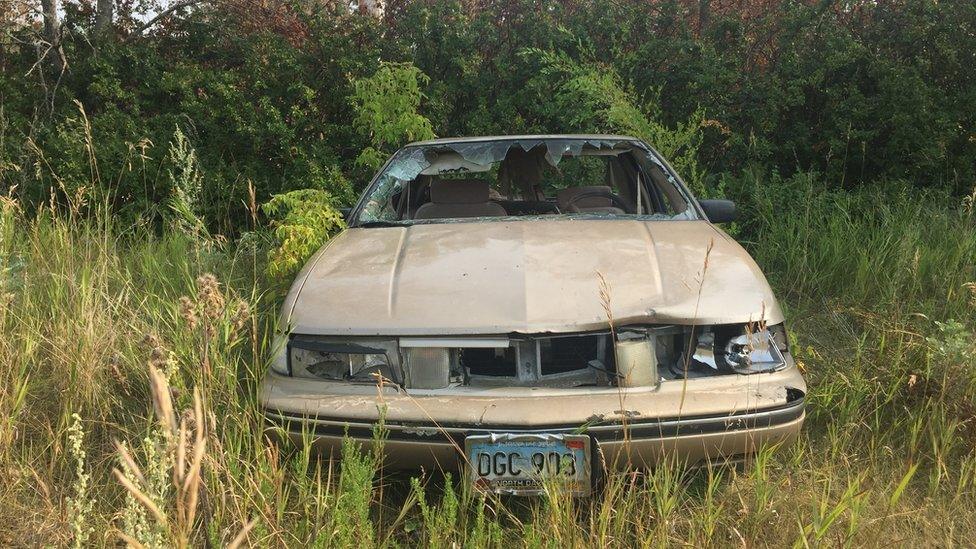
On the day that Yellowbird-Chase went looking for signs of a missing man in the wreckage of a house in Fort Totten, on the Spirit Lake Reservation, the sun rose in the sky over North Dakota like a bloody orange eye.
It was August, a little over a week after the discovery of Lone Bear, and wildfires were raging hundreds of miles away in California. The walls of smoke they created were rolling across the country and had reached the plains of the upper Midwest. The sky overhead glowed eerily as Yellowbird-Chase spoke to an anonymous tipster on her mobile phone, jotting notes on the back of a receipt.
Weeks earlier - not long after 38-year-old Joseph James Bruce Sr went missing - a house in Fort Totten had burned to the ground, the tipster claimed. No one had yet been through the charred remains.
Bruce vanished on 25 June. He was a big man - six-foot-two, 205 pounds, partial to his red "Native Pride" ball cap, his mouth framed by a salt-and-pepper moustache and goatee. His partner of over 20 years said he never showed up at a hospital where the couple's severely disabled 12-year-old son had been admitted with seizures. It wasn't like him, she said, to disappear in the middle of his child's health crisis.
A few days after his last contact, police found the family's minivan, specially outfitted for their son's wheelchair, at the end of a remote dirt road beside a marshy slough with the keys in the ignition. From there, the trail went cold.
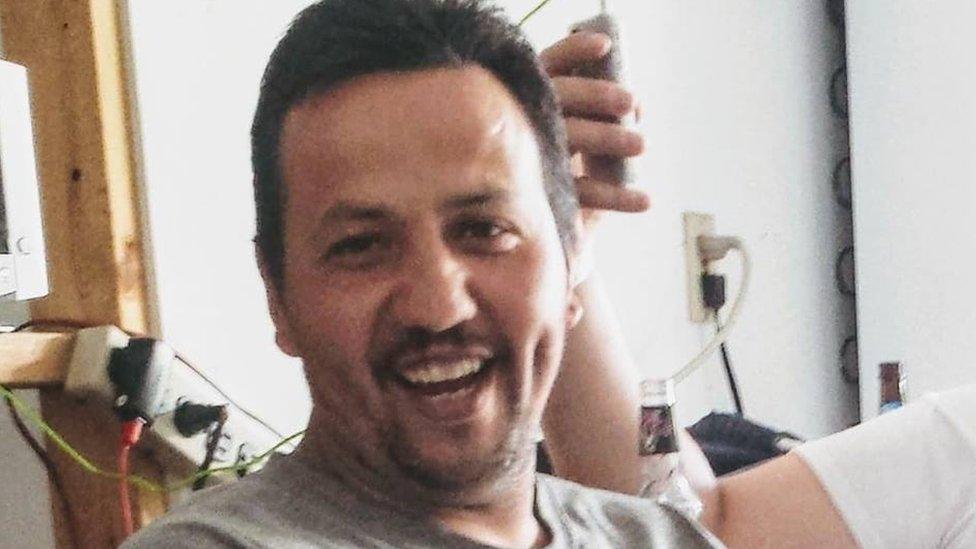
Joseph James Bruce Sr
Yellowbird-Chase sang a prayer song quietly to herself as the car flew around the curved shoreline of Devils Lake toward Fort Totten. Her car was a cluttered mess of old coffee cups and cigarette butts, maps and camping supplies, though her most important tool was likely her mobile phone - she tracks her search routes with a hiking app, records all her interviews and telephone calls, and her Facebook account pings constantly with new private messages.
At that moment, searching was Yellowbird-Chase's full-time gig. After nearly a decade working as a welder at a steel manufacturing plant in Fargo, she quit her job the previous winter in order to stay on the Lone Bear search. Since then, she had been financing her work through savings, though those funds were running low. She'd recently quit the lease on the apartment which had served as her base of operations and her home for 10 years, and said she planned to buy and live in a camper year-round - a kind of mobile search headquarters.
"I'd rather spend that [rent money] on helping somebody find their loved one," she said.
When she arrived at a residential neighbourhood in Fort Totten, she slowed to peer up at the houses. Although some were boarded up and dilapidated, none appeared totally gutted by fire. It took several passes before she found it.
"There's nothing here - nothing," she said, climbing down into the gravel where the house once stood. "This has been cleaned up."

It appeared that since the tipster had been to the house - a random one with no known connection to the Bruce family - a crew had come and levelled the remains with heavy equipment, carting away the debris and leaving nothing but an empty lot. If the fire had had anything to do with Bruce's disappearance, Yellowbird-Chase fretted, that evidence was now destroyed.
Chasing down leads - no matter how outlandish or speculative - is time-consuming but necessary to Yellowbird-Chase. When someone told Bruce's 62-year-old mother that he'd been "fed to the pigs", Yellowbird-Chase went looking for pig farms.
"She was here almost every weekend with us," said Miranda Patnaude, Bruce's partner.
Since she's not an officer of the law bound by jurisdiction, Yellowbird-Chase traverses on and off the reservation, speaking to whomever she pleases. As a Native person with experience in tribal law, she's familiar with the inner workings and politics of tribal governments and police departments. Yellowbird-Chase makes the call to authorities if she has something to report that took place on tribal land. If it's on municipal or county land, she asks one of the Sahnish Scouts.
"I'm the go-to white girl," said Jemima Heppner, one of her most reliable volunteers. "White privilege - we try to use that to our benefit when necessary."
Yellowbird-Chase also taps into what she calls her "criminal mind" at times, particularly when she's approaching an active suspect.
"I keep it real, I stay humble. I'm a human and I'm not afraid to show that," she said. "You can kind of get into that criminal mindset. At least I can."
As a young mother, Yellowbird-Chase was in and out of homelessness, violent relationships and an addiction to "everything" - crack cocaine and alcohol, principally. When her oldest daughter was 12 years old, she ran away from home, and Yellowbird-Chase did not go after her, a dereliction of duty that plagued their relationship for years.
"She believed that I didn't come looking for her because I didn't love her," Yellowbird-Chase said.
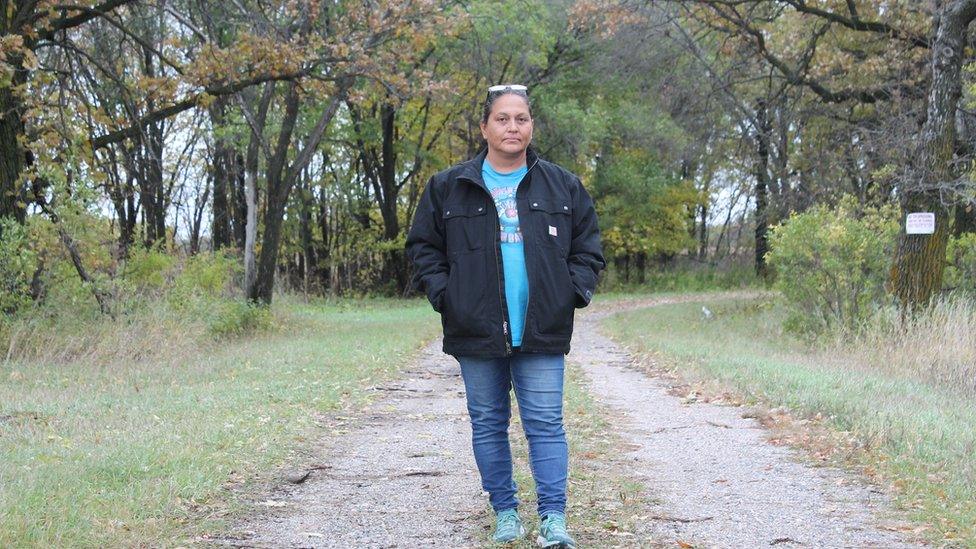
She eventually found purpose by becoming a legal advocate for the Three Affiliated Tribes, handling civil, criminal and family cases. But when a train derailment sent a cloud of ammonia over their town, the chemicals nearly killed her young sons. Their lengthy hospitalisations forced her to drop all her cases.
"My life kind of went to shit," she said. "My friend told me, 'I've got something that'll boost you up.' And that was the first time I ever tried meth. And that was the end of that."
In 2006, Yellowbird-Chase missed the birth of her first grandchild when she was arrested halfway across the state with a bag filled with methamphetamine and cash. She hit bottom when she was sentenced to 10 years in a North Dakota prison for possession with intent to distribute. She served just under three years.
"I decided I was going to come out of this different," she recalled.
In 2012, when Yellowbird-Chase was home, sober and working steady at the steel company in Fargo, Kristopher "KC" Clarke, a 29-year-old oil field worker, disappeared from the Fort Berthold Reservation. It was the height of the North Dakota shale oil boom, and Clarke - like tens of thousands of other young men - had moved to the Bakken from Washington state to chase the glut of high-paying jobs that had suddenly sprung up. When things soured with his oil contractor boss, Clarke wound up missing, his truck found abandoned. Although two people are currently incarcerated for Clarke's murder, his remains have never been found.
Yellowbird-Chase was transfixed by the case. She started passing out fliers on Fort Berthold, interviewing peripheral and then central suspects in the case. She spent days camping out in the fields, digging up suspicious patches of ground, smelling the air for foul odours.
She started buying more gear, and taking longer leaves from work to go on searches. Over time, she shifted her attention to mostly cases of missing indigenous men and women. She began gaining a reputation, and became a speaker at missing persons conferences and MMIW events. In 2015, the North Dakota Human Rights Coalition gave the Sahnish Scouts the "Arc of Justice" award for their work. They inspired a sister group called the Gitchigumi Scouts in Minnesota.
She now has a stack of cases on her desk, which she pores over in her cramped apartment in Fargo, at a desk chair whose wheels have ground a wide discoloured circle into the flooring.
"I always have something to do," she said. "There are always people reaching out."
Searching for Joe Bruce
It was a Facebook post by Bruce's 18-year-old daughter that first caught Yellowbird-Chase's eye. Unlike the Clarke case or the Lone Bear case, Bruce's story never caught fire on social media or picked up much news coverage.
A month after his disappearance, the search for Bruce had fallen almost entirely on the shoulders of the women in his family - his partner, his mother and his teenage daughters. They spent their Saturdays and Sundays driving the two hours to Spirit Lake to trespass on cattle pastures and abandoned farms, sifting through trash, peering down old wells, looking for any sign of him.
They'd searched the trash-strewn area where the van was found dozens of times, and picked new spots either at random, from rumour or even from images in their dreams.
Patnaude frequently posted on Facebook begging for additional volunteers, but aside from Yellowbird-Chase, she almost never heard back.
"I think they picture Joe as a bad guy but they don't know Joe the way we know him," said Patnaude. "I just wish other people would understand, too, that he is somebody's dad, boyfriend, son, brother."
At the time of his disappearance, a warrant was out for Bruce's arrest over an incident involving Patnaude - she asked the BBC not to include the details, fearing they will dissuade people from offering help. This hierarchy of victims is something that Yellowbird-Chase is very familiar with. She sees firsthand how some are deemed "worthy" of searching for, while others are received with indifference - as if culpable in their own disappearance.
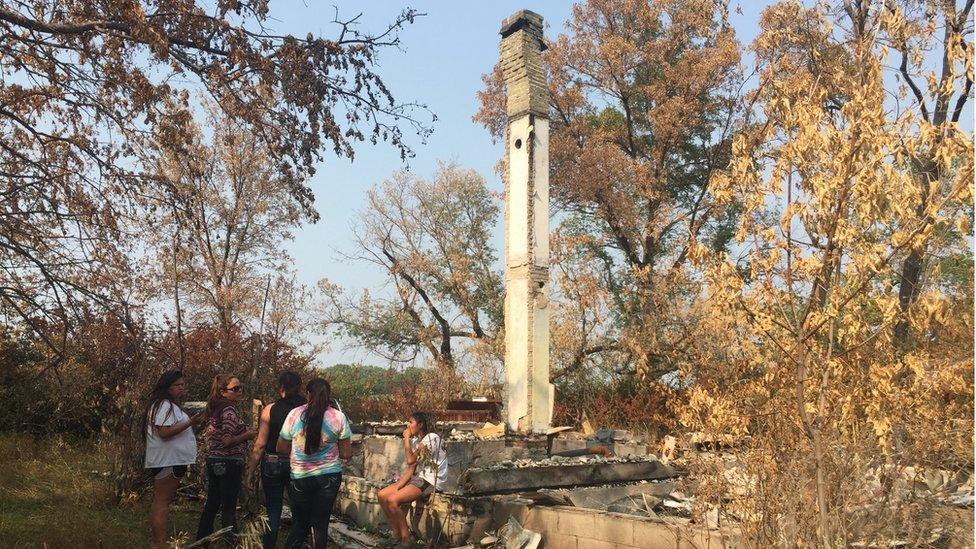
Miranda Patnaude and her daughters search an abandoned farm
"As a relative, we can look past that and know in our hearts that we still love that person, but society doesn't see it that way," she said.
Near the end of a weekend of searching for Joe Bruce, Yellowbird-Chase waited to take Patnaude and her daughter out on Devils Lake, in the same boat she'd used to find Olivia Lone Bear. But as the afternoon wore on, the family texted her they were heading to another town to consult with a psychic medium, and would not be back before dark.
The news filled Yellowbird-Chase with exasperation. It was a scenario she'd seen before, when psychics sent a family into a tailspin. A scammer had also been texting Patnaude, promising her footage of Bruce's disappearance in exchange for $3,000. When she failed to come up with the money, the man turned on her, sneering that she must have wanted Bruce to disappear.
Meanwhile, the search could only go on for another month, maybe two. It's not uncommon in North Dakota for snow to be falling by Halloween.
"You can't tell me the families aren't watching the calendar, too. But people get so desperate," said Yellowbird-Chase. "You'll try anything, you know? Can't blame them."

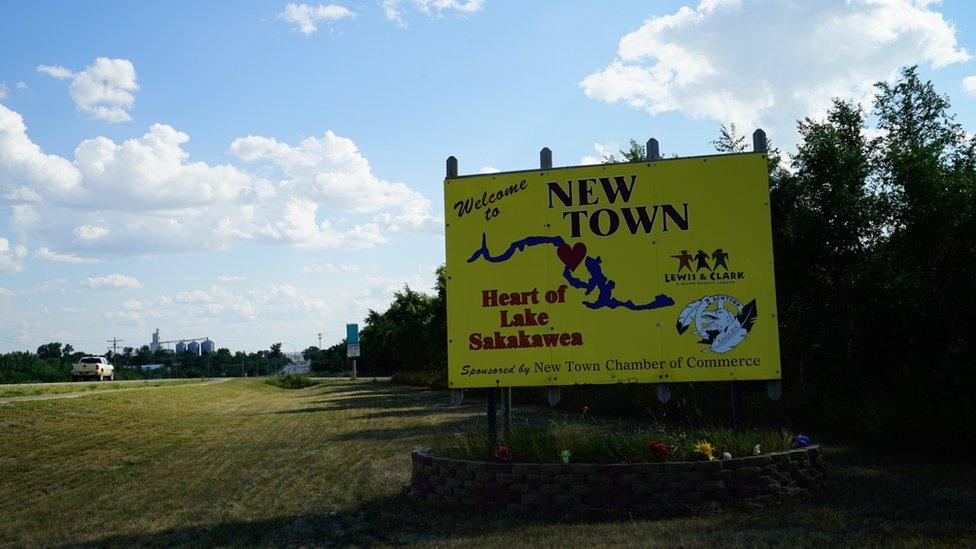
Olivia Lone Bear went missing right on the edge of winter, as well, long after most summer tourists had left the waters of Lake Sakakawea. Slow law enforcement response, jurisdictional confusion, lack of personnel and resources - it all came to bear on the case.
"We had been pushing for a water search even as far as November 1, that was one of the very first things that as a group we had asked law enforcement," said Matthew Lone Bear, Olivia's brother (he is her first cousin, but identifies as her brother) and the family's spokesman throughout the search. "They don't ever jump in in time, they don't ever put their resources towards it."
According to Matthew, Olivia's father Texx first tried to report her missing to the Three Affiliated Tribes police on a Thursday evening, but was not allowed to make a report until the next morning. He said it took until the following Monday for any real investigatory work to begin, and for a statewide BOLO - a "be on the lookout" alert - to go out, which triggered the first media attention. (Three Affiliated Tribes police did not return calls for comment.)
"They say the first 48 hours are crucial - well, they done wasted that," said Matthew.
Meanwhile, relatives from all over the region converged in New Town - a tiny city whose main street rumbles with trucks going to and from the oil wells that dot the landscape.
Vernon "Tuffy" First, Olivia's uncle and a retired member of the Fort Peck tribal police, said it was repeatedly insinuated to him that his niece had "run off", was out partying, or that she was involved in some other unsavoury activity that had led to her disappearance.
"Hearing those stories was upsetting," said First, who considered Olivia like a daughter to him. "I know my niece, she wouldn't do that."
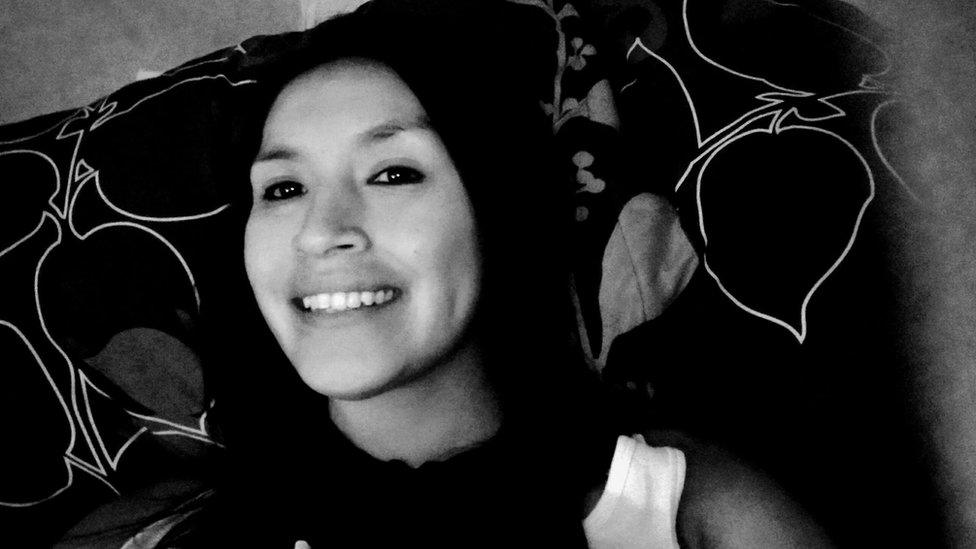
Olivia Lone Bear went missing in October 2017
Investigators eventually spoke to the owner of the missing pick-up truck, and to an ex-boyfriend of Olivia's, but no one was ever arrested. An alphabet soup of agencies came and went, but many couldn't stay long and communication became "chaotic", according to Matthew.
As the weather got colder, the number of volunteers dwindled and the family's fragile relationship with law enforcement deteriorated. Matthew claimed that officers weren't showing up to collect tips that had come in to their search headquarters. The FBI wouldn't step in because there was no evidence of an abduction or other major crime. While the Lone Bears were delighted when the federal Bureau of Indian Affairs (BIA) took over the investigation in January, by springtime, turnover at the agency left the family confused again.
"We had a revolving door of BIA agents," he said. "I felt that we were kind of put on the backburner because we didn't even know how long our BIA agents were going to be around."
One of the few consistent things about the case was the family's call for a water search. Boats and expertise were in short supply. On Facebook, Matthew Lone Bear posted pictures of two boats and jet skis sitting idle behind the tribal police headquarters, after they said none were available. The searches of the frigid, windblown bay where Olivia was eventually found seemed rushed to the family. An underwater robot team from Bismarck simply didn't drive the unit out far enough.
"We looked there," said Mountrail County Sheriff Corey Bristol. "There it is sitting 100 feet outside your search area… I just think about the hours that Texx and Matthew sat in their little command post. That could have been alleviated."
The Lone Bear family's search for Olivia
Cracks formed within the volunteer search effort as well. There were disagreements about strategy and access to resources. Rumours of misspent funds. Unscrupulous characters popped up in the camp, disparaging the family's efforts.
"There are people that are out there and they take advantage of families that are going through this," said Matthew.
By December, he considered Yellowbird-Chase to be one of them. Just a week after holding joint press conference where she sat side by side with the family, Yellowbird-Chase packed her things and left New Town. A few weeks after her departure, Matthew posted a searing condemnation on the Searching for Olivia Lone Bear Facebook page.
"[She was] crowdfunding in Olivia's name twice back in December… Starting fights here, kind of had a hostile environment for our searches, and we had to ask her to leave," he said.
Yellowbird-Chase said she couldn't have misappropriated funds because she never had access to PayPal accounts where money was collected for Olivia's search, and any crowdfunding she did was for the Sahnish Scouts. But she acknowledged that there were clashes with Matthew over the direction the investigation was going, over things like access to the search headquarters, to supplies and hotel rooms.
After leaving the search, she did her best to move on to other cases. But then the spring thaw came, and she couldn't help thinking about the bay.
"I figured, you know, nobody owns the lake."
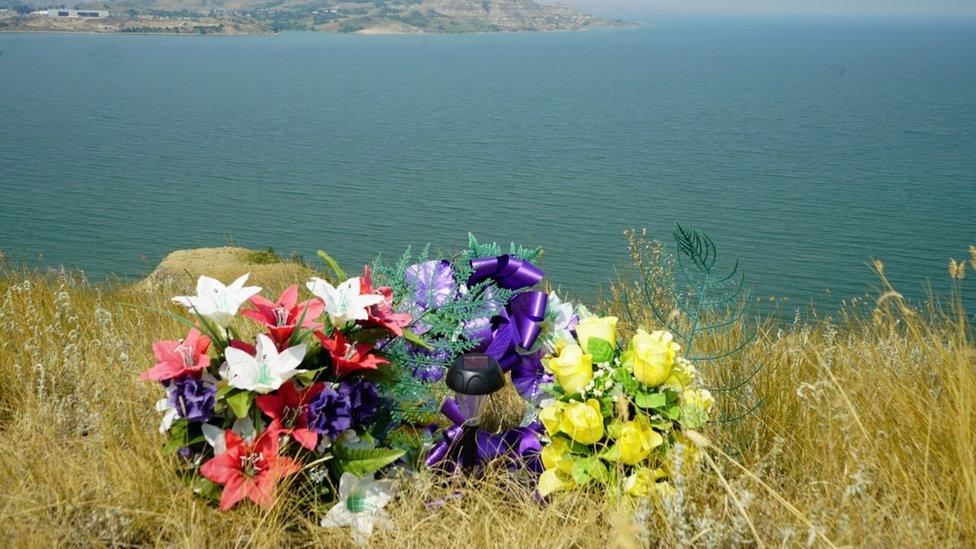
A memorial overlooking Lake Sakakawea
Some things have changed on the Fort Berthold reservation since Olivia Lone Bear first went missing. The Bureau of Indian Affairs assigned an additional full-time investigator to the reservation. The North Dakota Indian Affairs Commission is putting together a "draft template" for the course of action and coordination between agencies should another case like Lone Bear's arise. Matthew Lone Bear is also putting together his own protocol, taking lessons from their nine-month experience, which he hopes can be made uniform across the state.
These are a part of a broader, national effort to address the fractured criminal justice system in Indian Country, including legislative efforts like Savanna's Act (which has been stalled since its introduction in 2017) and bills in states like Washington, Minnesota and North Dakota. Many of these bills mandate data-reporting, and require additional funding and training for tribal law enforcement. The US Department of Justice has also established programmes to give tribal police new access to federal crime databases and added special assistant prosecutors to work exclusively on these cases.
But some advocates say these are just workarounds that do not address the fundamental issue of federal control of the justice system in Indian Country.
"I think we've really been conditioned to take crumbs," said Lucchesi of the Sovereign Bodies Institute. "Tribes should have jurisdiction over any of their treaty territory."
Hard feelings from the search persist, as well. Despite the discovery, Matthew Lone Bear thinks families should think twice about working with Yellowbird-Chase, and said he is planning to release a detailed statement on the Searching for Olivia Lone Bear Facebook page about "certain MMIW advocates".
Tuffy First, Olivia's uncle, took a different tack. After the discovery of her body was made, he invited Yellowbird-Chase to visit him at his home in Montana, and when she did, he gave her a star blanket - a symbol of respect and appreciation for finding Olivia.
"I'm really grateful. It was really emotional for me," he said. "We don't need to have that part in our mind, our bodies, our spirits - wondering."
The case of Olivia Lone Bear remains unsolved. The investigation is ongoing, but little new information has been released to the family, even eight months after her body was discovered.
They have only been given the death certificate. Under cause of death, the document said, "undetermined".

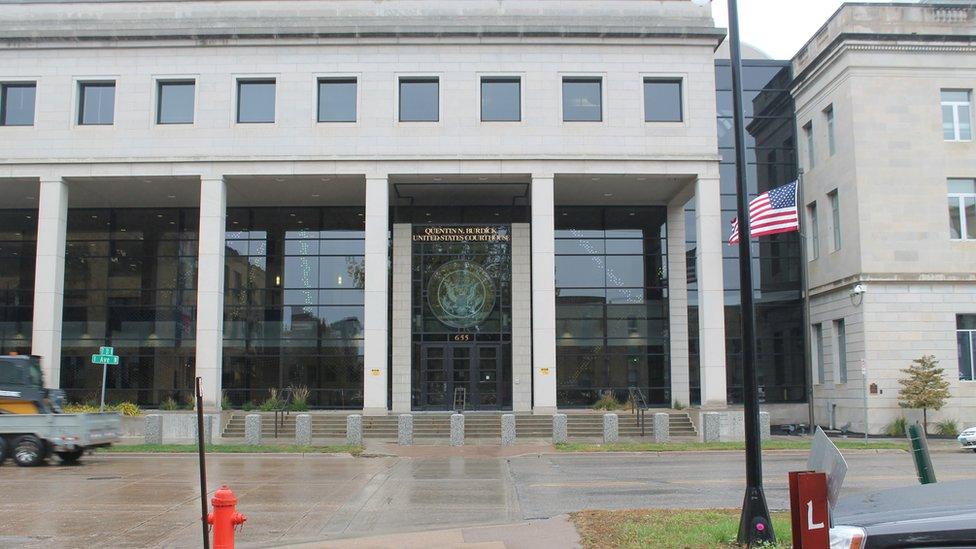
On a frigid, colourless day in October, Yellowbird-Chase waited on a bench on the fourth floor of a nearly silent federal courthouse in downtown Fargo. She'd driven from another case in Montana, and arrived the prior night with just enough time to unload three-week's worth of laundry and muddy gear at her apartment before falling asleep without writing a word of what she was about to say to the judge.
"Just gonna wing it," she said.
Many missing persons cases never find resolution. Families are left wondering for the rest of their lives what happened - some who've been through it say this is a worse fate than finding out that the person died.
Others, like the case Yellowbird-Chase was in Fargo for that day, do find resolution in the courts. But it was one that was uniquely terrible for her.
"It's different when it's one of your own," she said.
In August of 2016, one of Yellowbird-Chase's own relatives vanished (the BBC is honouring a request from the woman's immediate family that her name not be published). A month later, authorities found the body in a remote thicket on the Spirit Lake Reservation. The cause of death was a single gunshot wound.
Now, two years later, Suna Felix Guy - one of the three men involved in the murder - was about to be sentenced.
Guy walked into the courtroom a half an hour late, trailed by his girlfriend and their toddler son. A tall, bespectacled 40-year-old with his head shaved down to his skull, Guy looked shaky as he took a seat beside his lawyer.
Because she was a member of the victim's family, Yellowbird-Chase sat on the other side of the courtroom, behind the federal prosecutor. But she was not there to ask the judge for a lengthy period of incarceration for Guy - she had come to ask for leniency.
Two years earlier, Yellowbird-Chase heard that Guy was one of the last people seen with the victim. Due to his past criminal history, he was already under investigation by police, but then Yellowbird-Chase posted a brazen public Facebook message, calling him out. Guy responded to her almost immediately, which kicked off a 48-hour marathon of messages and phone calls, in which Yellowbird-Chase cajoled, lectured and pleaded with Guy to tell her what had happened.
Eventually, he broke.
"She didn't force, she didn't demand, she didn't promise me nothing. It's just the way she conducted herself with me. She made me feel comfortable," said Guy. "The family needed to - they deserve the truth."
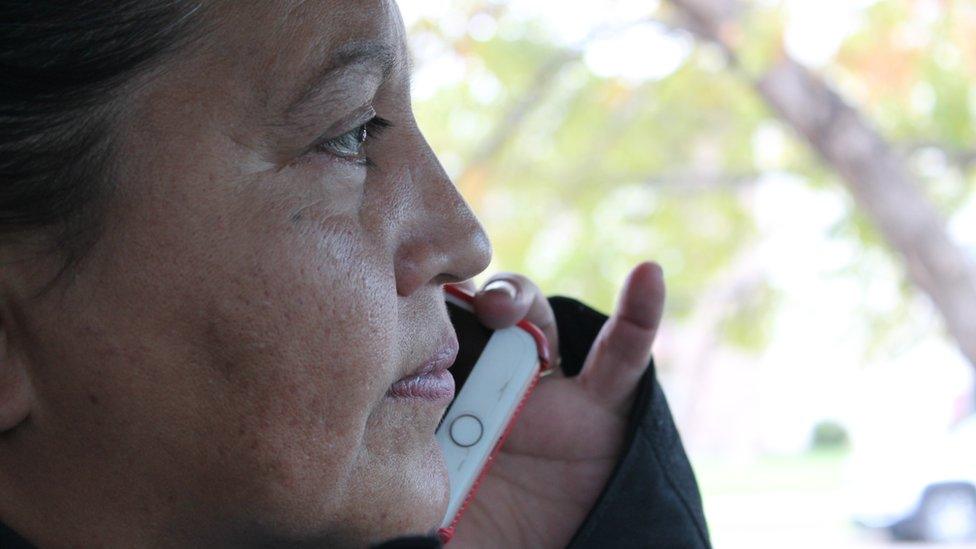
Guy phoned an investigator with the Mandan Police Department and volunteered to bring authorities to the body. Guy, Guy's parents, Yellowbird-Chase, and agents from the FBI all met up at a house on the reservation, and Guy told them that on the day of the murder, he had driven with the victim to meet up with two men named Dakota Charboneau and Daylin St Pierre. While the victim slept, Charboneau and St Pierre drove her down a back road on the reservation, robbed and shot her, though Guy told investigators he had no idea ahead of time that the victim was going to be murdered. He held onto the secret, he claimed, out of fear for his own life.
"I didn't really trust the FBI agents or the local PD," he said. "That's why I felt the need of having Lissa there."
After the body was recovered, Yellowbird-Chase said she plunged into a depression and didn't go to work for a month.
"I face-planted," she said.
But something odd happened after that. Yellowbird-Chase and Guy stayed in touch. She befriended his elderly mother and father, who call Yellowbird-Chase "an angel" who helped their son do the right thing. She encouraged Guy to stay on the straight and narrow, even as his parents say he was being threatened.
"We're not important around here," said Guy's mother. "[Police] just look at you and shrug it away like you're nothing. They don't believe you."
Investigators on the case felt Yellowbird-Chase's contact with Guy while the case was still open was inappropriate. The relationship put her in intense conflict with members of her own family. Nevertheless, she agreed to speak on his behalf at sentencing.
'This is why people don't look for our murdered and missing'
In court, the federal prosecutor acknowledged that Guy's confession was essential to recovering the body. In exchange for his testimony, US Attorney's Office agreed to forgo the mandatory life sentence for felony murder, and asked instead for a 15-year sentence.
Guy's defense lawyer argued that his cooperation should knock the sentence down to five years. Then he asked Yellowbird-Chase to step forward and address the judge.
"A lot of our people are still laying in fields and behind bushes all over this country and nobody cares," she began. "Without Suna, it's likely she would be laying out there. We're looking for other people out there right now, and no one's talking… He showed compassion to us… We were lucky. We got her back."
Ultimately, the judge sided with the prosecution. Guy was sentenced to 15 years in prison and the judge ordered him placed into custody immediately. He seemed confused and angry, whispering loudly as a pair of US Marshals slowly moved towards him from the back of the courtroom with a pair of handcuffs.
A short while later, Yellowbird-Chase sat in the cab of her SUV smoking a cigarette and talking to Guy's lawyer on the phone.
"I think he got screwed," she said.
(At later court dates, Charboneau and St Pierre were sentenced to 50 and 27-and-a-half years, respectively.)
The blank-looking sky was threatening snow. For Yellowbird-Chase, snow would signal the end of the 2018 search season. It would cover everything - tracks, bodies, odours. The lakes and ponds would freeze over. Roads to hidden corners of the reservations would become impassable. All searches would come to a halt.
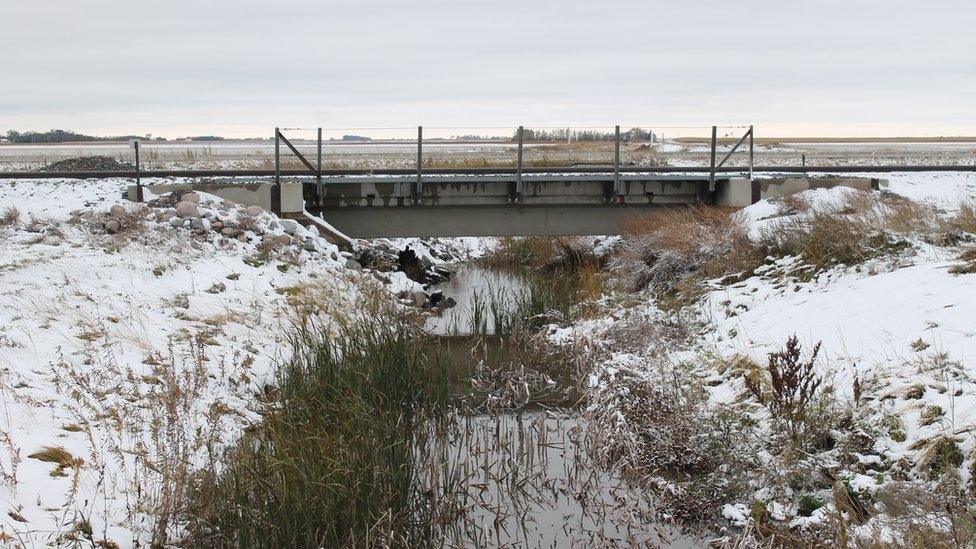
It was also a season of change for Yellowbird-Chase. She was packing up her case files, her shovels, her sonar and gear, and preparing for a permanently nomadic life with her straw-coloured Chihuahua-mix Nellie. She had to be out of the apartment where she'd raised her youngest sons by the spring, a thought that suddenly chokes her up.
"My kids are grown. I been waiting for this for a long time," she said. "Me and Nellie are ready to play the bachelorette scene, and just go from one case to the other. I really have no ties here."
But the dream of buying and living in a camper seemed to be dimming. She admitted that she's nearly out of money, and had stopped taking new cases. It was possible, she said, that she'd wind up taking a job on the oil fields to stay afloat.
At the same time, she still had seven open cases. The success with Olivia Lone Bear had made her second guess her previous work looking for Ron Johnson, a 74-year-old grandfather who disappeared on the way home from a casino in New Town. She had to go back to the Fort Peck Reservation to look for the body of Jason Azure, a 40-year-old father presumed drowned after he was swept away in a river.
She would return to Spirit Lake to look for Joe Bruce, and to the Bakken to look for KC Clarke, and wherever else the cases took her.
"Don't underestimate me," she joked. "By next year I'll be doing air searches."
That night, the grey skies over North Dakota broke open, and the first snow of the season flew.
Videos by Colleen Hagerty
.